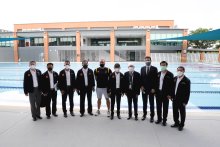
Wellington College Bangkok Director of Sport, Jon Fudge, offers a perspective on a question which has challenged schools, institutions, parents and governments for time immemorial, sharing the latest research and his own experiences of delivering sporting success.
This week, we had the honour of hosting the Senate Sports and Recreation Subcommittee as they visited Wellington to see how we support sporting excellence to the highest level. It was a joy to showcase our Faculty of Sport and you will, of course, not be surprised to learn that I am immensely proud of our offering and passionate about our inclusive ‘sport for all’ philosophy. I could easily talk all day about the strength of our pioneering curriculum, our incredible PE staff and our fabulous facilities – all of which matter so much when you are aspiring to deliver the absolute best. The Senate representatives were keen to discover more about our approach across all areas of sport from inclusion to elite performance, and it was a question on reaching the pinnacle of sporting success which ignited the often-debated question ‘How do you make an Olympian?’.
Of course, this question has limitless possible answers and prompts passionate debate. There are so many factors that contribute to sporting excellence that it would be naïve to suggest one set of hard-and-fast rules or parameters.
It is also difficult to fathom how early specialisation would not deliver sporting excellence – especially when you see the obvious examples of this approach with Tiger Woods, Serena Williams and Lionel Messi – all of whom focused solely on their chosen sport from a very early age.
The notion that ‘10,000 hours’ of purposeful practice is the only way to achieve sporting success seems to be pretty much the main doctrine that is espoused by those who wish their children to reach sporting greatness.
However, this is certainly not the only route that sporting professionals take, and a recent study highlighted in this excellent article in the New York Times offers another perspective which, in many ways, tallies with one of our approaches here at Wellington, and with the story of Roger Federer’s formative years, on his way to becoming the greatest tennis player of all time.
Of course, if a child comes to us looking to dedicate themselves to one particular sport, and shows the potential to be successful, at Wellington, we can absolutely support them – and we do. You just have to look at our Swim Squad or Golf Team to see examples. Catering for the individual is a key aspect of a Wellington education.
I have been conscious – for many years now, through my own experiences in teaching – that early specialisation is not necessarily the only route to success. I was therefore buoyed by the New York Times article and the study from the Association of Psychological Science (APS). The argument against over-specialisation has been made before, and I very much recommend ‘Range’ by David Epstein, who covers the subject in detail. Furthermore, the benefits of generalisation – or gaining a variety of experiences – is not only linked to sporting success. Epstein’s book looks at the world's most successful athletes, artists, musicians, pioneers, and scientists. He argues that, in many industries, it is generalists, not specialists, who have the capabilities to excel. He contends that generalists often find their path later on, juggling many interests rather than focusing on one. They're also more creative, adaptable and able to make connections their more specialised peers may not see.
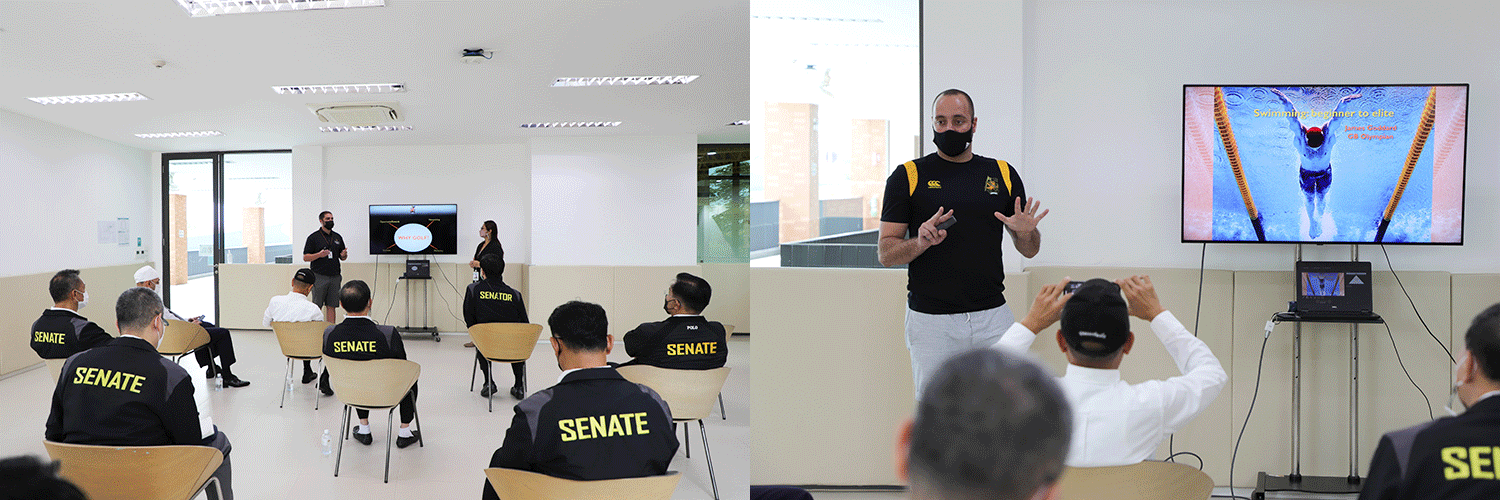
I have seen this myself over the years when teaching PE and Sport. Well-rounded students, who have a variety of interests and have a voracious attitude to hard work, whether it is in the science lab or on the running track, have invariably shown the mental toughness and the dedication to achieve their sporting ambitions. That is very much part of the Wellington philosophy. The school day is very busy, varied and always challenging – and always centred around the needs of the individual student.
However, we should not pit early specialisation against generalisation – the solution surely is to be cognisant of both, and that is the attitude we have here at Wellington. Regardless of what David Epstein or the APS argue, you will always have a Tiger Woods or a Lionel Messi. Furthermore, you will always have children who are simply passionate about one particular sport above all others – and that is absolutely fine! But it was heartening when putting my point of view across this week to our visitors that I was able to reference our very own Olympian, Head of Swimming James Goddard, who himself specialised in swimming later on, after finding his way to the elite level via a variety of sports, including playing for Manchester City’s youth football academy as a teenager. Variety does indeed seem to be the spice of life!
#WellingtonCollegeBangkok #WellingtonSport

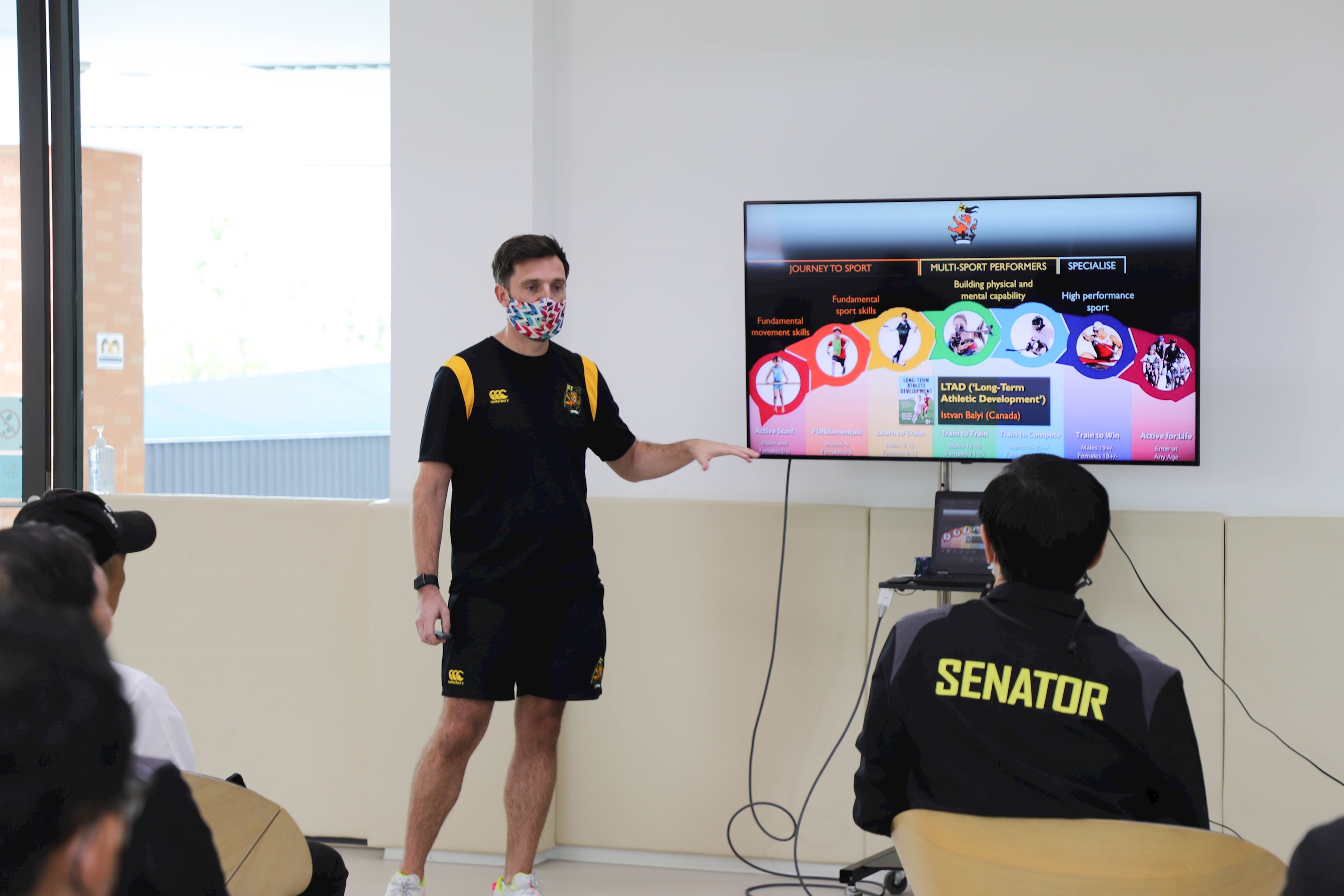

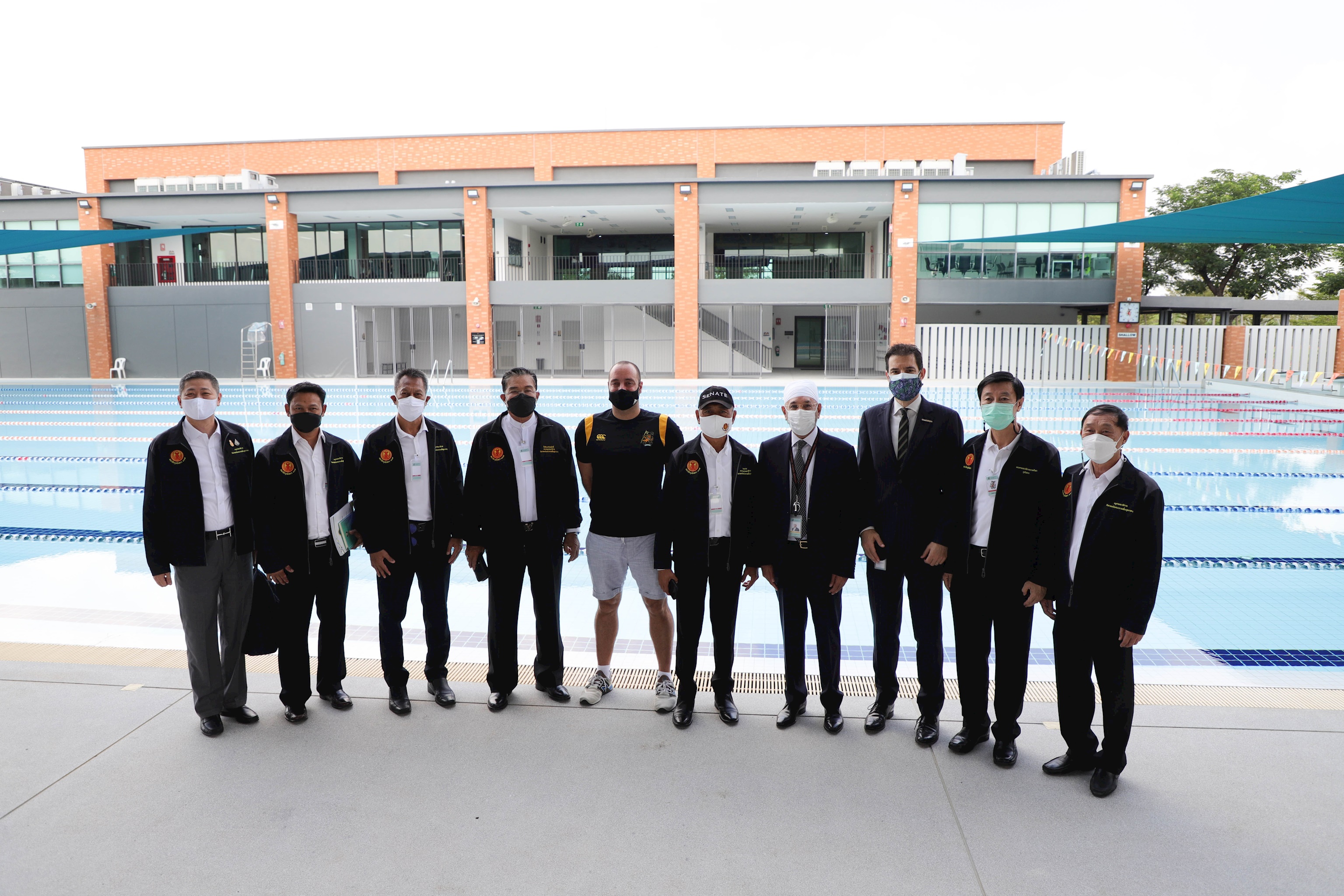
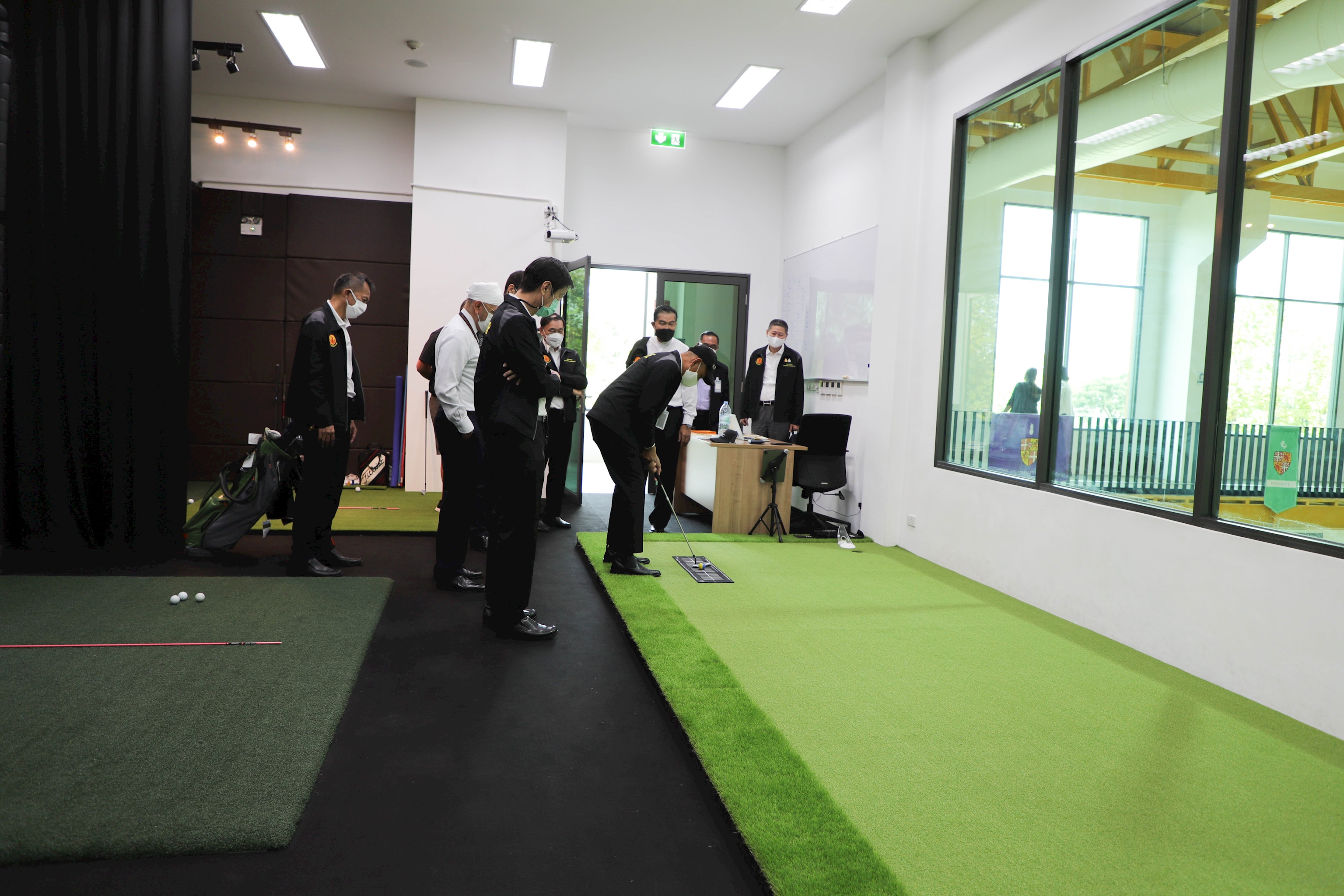
%201.png&command_2=resize&height_2=85)

